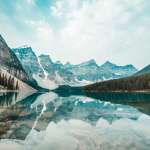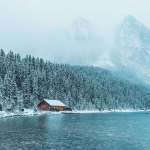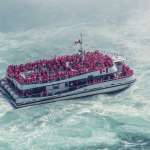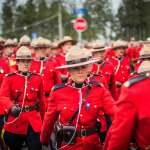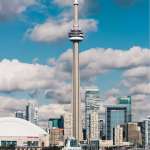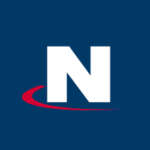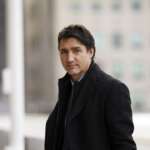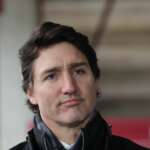A Closer Look at Canada
Canada Flag
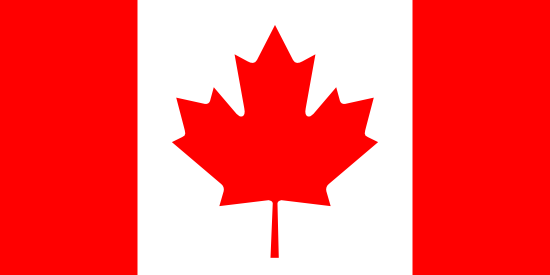
Canada Formation Date
April 1, 1867
Canada Capital Name
The capital city of Canada is Ottawa.
Canada Neighbours
Exploring Canada
Canada: A Comprehensive Overview
Canada, located in the northern part of North America, is the second-largest country in the world by land area. It is bordered by the United States to the south and northwest, and by the Arctic Ocean to the north. With a population of over 37 million people, Canada is a diverse and multicultural country known for its natural beauty, strong economy, and high quality of life.Etymology of the Country Name
The name "Canada" is believed to have originated from the Huron-Iroquois word "kanata", meaning village or settlement. French explorer Jacques Cartier used this term to refer to the area around present-day Quebec City in the 16th century. Over time, "Canada" became the official name for the entire country.Geography
Canada's vast land area covers 9.98 million square kilometers, making it the second-largest country in the world after Russia. It is divided into ten provinces and three territories, each with its own unique landscape and natural resources. Physical Features: Canada is known for its diverse physical features, including mountains, forests, lakes, and rivers. The Rocky Mountains run through western Canada, while the Canadian Shield covers a large portion of central and eastern Canada. The Great Lakes, which are shared with the United States, are some of the largest freshwater lakes in the world. Natural Resources: Canada is rich in natural resources such as oil, natural gas, timber, minerals, and fresh water. These resources play a significant role in Canada's economy and have made it one of the wealthiest countries in the world. Climate: Due to its large size, Canada has a varied climate ranging from arctic conditions in the north to temperate climates in the south. The majority of the population lives in the southern regions, where the climate is milder. The country experiences four distinct seasons, with cold and snowy winters and warm summers.Origin and History
Canada has a rich history dating back thousands of years. The indigenous peoples, including the First Nations, Inuit, and Métis, have inhabited the land for thousands of years. The arrival of European explorers in the 16th century led to the colonization of Canada by the French and British. Ancient Civilizations: Archaeological evidence suggests that indigenous peoples have been living in Canada for at least 12,000 years. These early civilizations developed complex societies and cultures, with many different languages and traditions. Colonial Period: In the 16th century, French explorer Jacques Cartier claimed parts of Canada for France. This led to a series of conflicts between the French and British over control of the territory. In 1763, Canada came under British rule after the Seven Years' War. Modern History: In 1867, Canada became a self-governing dominion within the British Empire. Over time, it gained more independence from Britain and became a fully sovereign nation in 1982. Today, Canada is a member of the United Nations and plays an important role in global affairs.Government and Politics
Canada is a federal parliamentary democracy and a constitutional monarchy with Queen Elizabeth II as the head of state. The country is divided into ten provinces and three territories, each with its own elected government. The federal government is responsible for national issues such as defense, foreign affairs, and trade. Borders and Geopolitical Relationships: Canada shares the longest international border in the world with its southern neighbor, the United States. The two countries have a close relationship and are each other's largest trading partners. Canada also has strong diplomatic ties with other countries, including the United Kingdom, France, and Australia.Commerce and Economy
Canada has one of the world's largest and most developed economies, with a strong focus on natural resources, manufacturing, and services. The country is a member of the G7 group of industrialized nations and is ranked highly in terms of economic freedom, quality of life, and human development. Economic Sectors: The service sector is the largest contributor to Canada's economy, accounting for over 70% of its GDP. Other important industries include manufacturing, mining, and agriculture. Canada is also a major exporter of natural resources such as oil, natural gas, timber, and minerals. Trade Relations: Canada has a highly diversified economy and trades with countries all over the world. Its top trading partners include the United States, China, Mexico, Japan, and the United Kingdom. The North American Free Trade Agreement (NAFTA) has played a significant role in promoting trade between Canada, the United States, and Mexico. Currency: The official currency of Canada is the Canadian dollar (CAD), which is divided into 100 cents. It is one of the most stable currencies in the world and is widely accepted in international trade.Demographics
Canada is a diverse and multicultural country with a population of over 37 million people. The majority of Canadians live in urban areas, with Toronto, Montreal, and Vancouver being the largest cities. English and French are the two official languages of Canada, but many other languages are spoken due to its diverse population. Population Distribution: The majority of Canada's population lives in the southern regions near the United States border. The northern regions are sparsely populated due to their harsh climate and remote location. Ethnicity: Canada is a multicultural society, with people from various ethnic backgrounds. The largest ethnic groups include English, French, Scottish, Irish, German, Italian, and Chinese. Age Statistics: The median age in Canada is 41.2 years, and the life expectancy is 81 years. The country has a low birth rate and an aging population, which has led to concerns about the sustainability of social programs such as healthcare and pensions.Culture
Canada's culture is a blend of indigenous, French, British, and other immigrant influences. It is known for its diverse arts, music, festivals, and traditions that reflect the country's multiculturalism. Holidays and Festivals: Canada celebrates a variety of holidays and festivals throughout the year. Some of the most popular include Canada Day (July 1st), Thanksgiving (second Monday in October), and Christmas. Languages: English and French are the two official languages of Canada, but there are many other languages spoken throughout the country. In Quebec, French is the dominant language, while English is more widely spoken in other provinces. Religion: Christianity is the most practiced religion in Canada, with Roman Catholicism being the largest denomination. Other major religions include Islam, Hinduism, Buddhism, and Sikhism.Education System
Education in Canada is primarily the responsibility of the provinces and territories. The country has a high literacy rate of over 99%, with education being compulsory for children between the ages of 6 and 16. Structure: The education system in Canada is divided into primary (elementary), secondary (high school), and post-secondary (college or university) levels. Each province has its own curriculum and standards for education. Literacy Rates: Canada has one of the highest literacy rates in the world, with over 99% of its population being able to read and write. Academic Institutions: Canada has a wide range of academic institutions, including public and private schools, colleges, and universities. Some of the most prestigious universities in Canada include the University of Toronto, McGill University, and the University of British Columbia.Healthcare
Canada has a publicly funded healthcare system that provides universal coverage to all citizens and permanent residents. The system is funded through taxes and is designed to ensure that all Canadians have access to essential medical services. Healthcare System: The healthcare system in Canada is divided into two parts: primary care and hospital care. Primary care includes services such as doctor visits, while hospital care covers more specialized services. Public Health Initiatives: Canada has a strong focus on public health initiatives, including disease prevention and health promotion. The government works closely with healthcare professionals to educate the public on healthy living habits and disease prevention strategies.Sports and Recreation
Sports play an important role in Canadian culture, with ice hockey being the most popular sport in the country. Other popular sports include football (soccer), basketball, and lacrosse. Canada has also produced many successful athletes who have excelled on the international stage.Tourism
General Overview: Canada is a popular tourist destination known for its natural beauty, vibrant cities, and cultural attractions. The country attracts millions of visitors each year who come to experience its diverse landscapes, wildlife, and outdoor activities. Important Places: Some of the must-see destinations in Canada include Banff National Park, Niagara Falls, Vancouver Island, and Old Quebec City. These places offer stunning scenery, outdoor adventures, and unique cultural experiences. Activities: There is no shortage of things to do in Canada, from skiing in the Rocky Mountains to whale watching on the east coast. Other popular activities include hiking, camping, fishing, and wildlife viewing. Infrastructure and Transportation: Canada has a well-developed transportation system, making it easy for tourists to get around. Major cities have public transportation systems, including buses, subways, and trains. The country also has a network of highways and airports connecting different regions.Travel Information for Foreign Visitors
Visa Requirements: Visitors to Canada may require a visa depending on their country of origin. It is essential to check the Canadian government's website for up-to-date information on visa requirements and the application process. Health and Safety: Canada is generally a safe country to visit, but it is always important to take precautions when traveling. It is recommended to have travel insurance and be aware of any potential health risks in the areas you plan to visit. Local Customs and Etiquette: Canadians are known for their politeness and friendliness. It is important to respect their customs and etiquette, such as saying "please" and "thank you" and being mindful of personal space. Currency and Payment Methods: The official currency of Canada is the Canadian dollar (CAD). Credit cards are widely accepted, but it is always a good idea to have some cash on hand for smaller purchases.Conclusion
In conclusion, Canada is a diverse and dynamic country with a rich history, strong economy, and high quality of life. From its stunning natural landscapes to its vibrant cities, there is something for everyone in this vast and beautiful country. As Canada continues to grow and evolve, it will undoubtedly remain a top destination for tourists and a desirable place to live for its citizens.Canada Image Gallery
Gallery Caption: Canada pictures. Source Unsplash.com
Canada Highest Point Name
The highest point in Canada is Mount Logan, located in the Yukon Territory. Mount Logan has an elevation of 5,959 meters (19,551 feet) above sea level.
Canada Highest Point Value
5,959 m
Canada Capital Longitude
75.6972°W
Canada Capital Latitude
45.4215°N
Canada Official Languages
English and French are the official languages of Canada.
Canada Ethnic Groups
The ethnic groups in Canada are diverse and include people of European, Asian, African, and Indigenous descent. The majority of the population are of either European or Asian origins, with the largest group being of English or French descent. Other major groups include Germans, Italians, Ukrainians, Poles, Chinese, Punjabi, East Asians and South Asians. Indigenous Canadians comprise the First Nations, Metis, and Inuit groups. There has also been an influx of refugees and new immigrants from around the world, particularly from South Asia and the Middle East. Overall, Canada is a multicultural nation with a strong appreciation for diversity.
Canada Religions
The major religion practiced in Canada is Christianity. About 67% of the population is Christian, with Roman Catholics making up the largest group (39% of Canadians). Other Christian denominations include Anglicans, Presbyterians, Lutherans, Pentecostals, Baptists, and members of the Eastern Orthodox Church. Other religions practiced in the country include Islam (3%), Hinduism (1.5%), Sikhism (1.4%), Buddhism (1.1%), and Judaism (1%). About 23% of the country's population does not identify with any particular religion.
Canada Total Area
The total area of Canada is 9,984,670 square kilometres (3,855,100 square miles).
Canada Land Area
Canada is the second-largest country in the world. It has an area of 9,984,670 km² (3,855,100 mi²). It is 9,093 km (5,665 mi) wide and has the longest coastline in the world at 243,791 km (151,485 mi).
Canada Water Area
The total area of Canada's inland and coastal waters is more than 8.92 million square kilometers, which is more than 7.5 times the country’s land area.
Canada Total Population
According to the World Population Review, as of 2020 the population of Canada was 37,742,154.
Canada Currency Name
Canada's currency is called the Canadian Dollar (CAD).
Canada Currency Code
The country currency code for Canada is CAD (Canadian Dollar).
Canada Currency Symbol
The currency symbol for Canada is the Canadian dollar which is symbolized as "$" or "C$.
Canada Calling Code
+1
Canada Internet TLD
www.aveholidays.ca
How to Say "Canada" In Different Languages?
- Portuguese
- Canadá (pt-BR)
- Chinese
- 加拿大 (zh-CN)
- Finnish
- Kanada (fi-FI)
- French
- Canada (fr-FR)
- German
- Kanada (de-DE)
- Hindi
- कनाडा (hi-IN)
- Hebrew
- קנדה (he-IL)
- Italian
- Canada (it-IT)
- Japanese
- カナダ (ja-JP)
- Korean
- 캐나다 (ko-KR)
- Spanish
- Canadá (es-MX)
- Dutch
- Canada (nl-NL)
- Polish
- Kanada (pl-PL)
- Romanian
- Canada (ro-RO)
- Russian
- Канада (ru-RU)
- Spanish
- Canadá (es-ES)
- Swedish
- Kanada (sv-SE)
- Thai
- ประเทศแคนาดา (th-TH)
- Turkish
- Kanada (tr-TR)
- Ukrainian
- Канада (uk-UA)
Canada Popular Holidays
- New Year's Day
- 1 January
- Family Day
- 18 February
- Good Friday
- 10 April
- Easter Monday
- 13 April
- Victoria Day
- 24 May
- Canada Day
- 1 July
- Civic Holiday
- 5 August
- Labour Day
- 7 September
- Thanksgiving
- 12 October
- Remembrance Day
- 11 November
- Christmas Day
- 25 December



